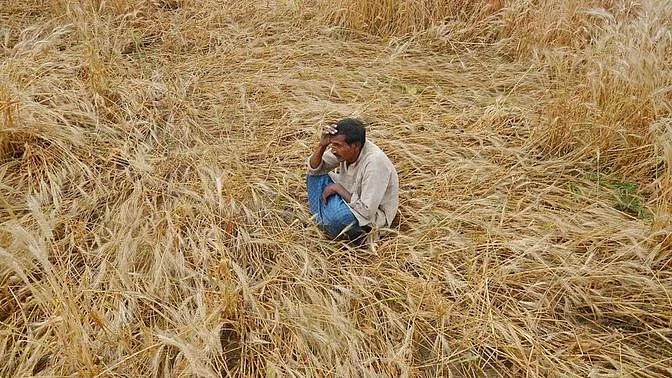International Monetary Fund (IMF) chief Kristalina Georgieva on Tuesday, 24 May, urged India to reconsider its ban on wheat exports as soon as possible.
Speaking on the sidelines of the World Economic Forum in Davos, Georgieva stressed that restricting exports may prompt other nations to do the same, which would make the global community less equipped to deal with the crisis, NDTV reported.
"I do have an appreciation for the fact that India needs to feed nearly 1.35 billion people and I do have appreciation for the heatwave that has reduced agricultural productivity, but I would beg India to reconsider as soon as possible because the more countries step into export restrictions, the more others would be tempted to do so and we would end up as a global community less equipped to deal with the crisis.”Kristalina Georgieva
When asked to what extent it would help if India lifted the export ban, Georgieva said since wheat supply had been severely impacted due to the Russia-Ukraine war, "depending on how much India can export and where it directs its exports, it could have (a) significant impact especially if exports go to the countries most severely impacted like Egypt or Lebanon."
She also added that these were among the countries where there was a risk not only of rising hunger, but also of social unrest, which could "impact global stability."
Crop Loss, Heatwave To Blame
India, the world's second-biggest wheat producer after China, on 13 May, prohibited the export of wheat with immediate effect, in a bid to ensure food security in the nation as an intense heatwave hit output and domestic prices hit a record high.
India recorded a huge crop loss in March due to the heatwave.
A notification from the Ministry of Commerce has said, "It has been decided that wherever wheat consignments have been handed over to Customs for examination and have been registered into their systems on or prior to 13.5.2022, such consignments would be allowed to be exported."
The Centre is also allowing exports to other countries that import wheat to meet their food security needs, based on requests made by their governments and prior permission by the Indian government.
Explaining its rationale behind prohibiting the export of wheat, the central government had said that it was committed to providing for the food security of India as well as other vulnerable countries that had been adversely affected by sudden disruptions in the global market for wheat.
But in the aftermath of the ban, as the wheat prices soared to a record high, the ban drew criticism from Group of Seven or G7 nations, which said that such moves would "worsen the crisis" of rising commodity prices.
Impact of the Russia-Ukraine War
The Ukraine war, which began in February, had also caused the supply of wheat to drop from the Black Sea, thus having a significant impact on the global market.
Prime Minister Narendra Modi, during his recent visit to Germany, had also acknowledged the global shortage of wheat and said that the farmers of the country "have stepped forward to feed the world."
"Whenever humanity is faced with a crisis, India comes up with a solution," he had said.
(With inputs from NDTV.)
